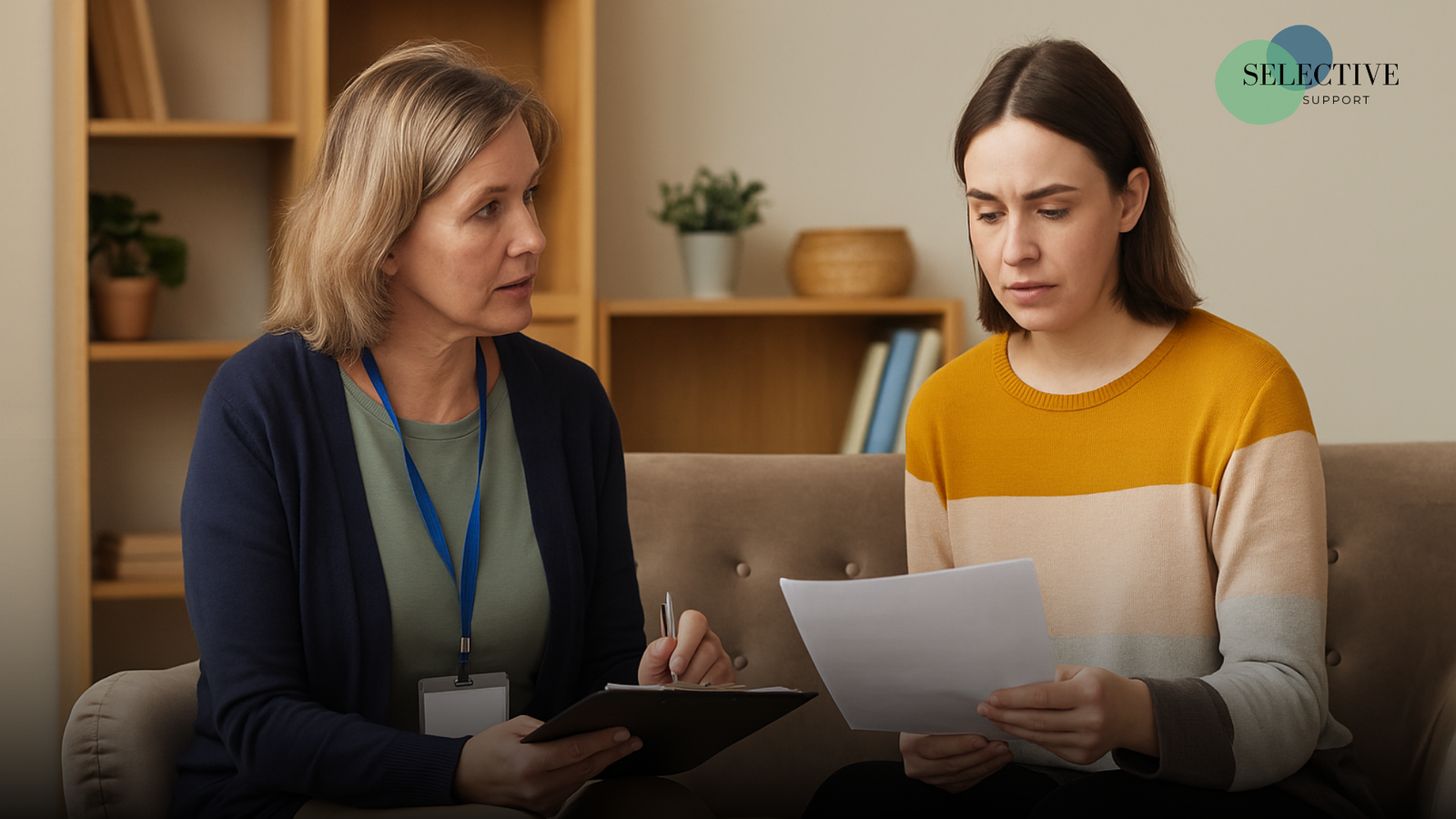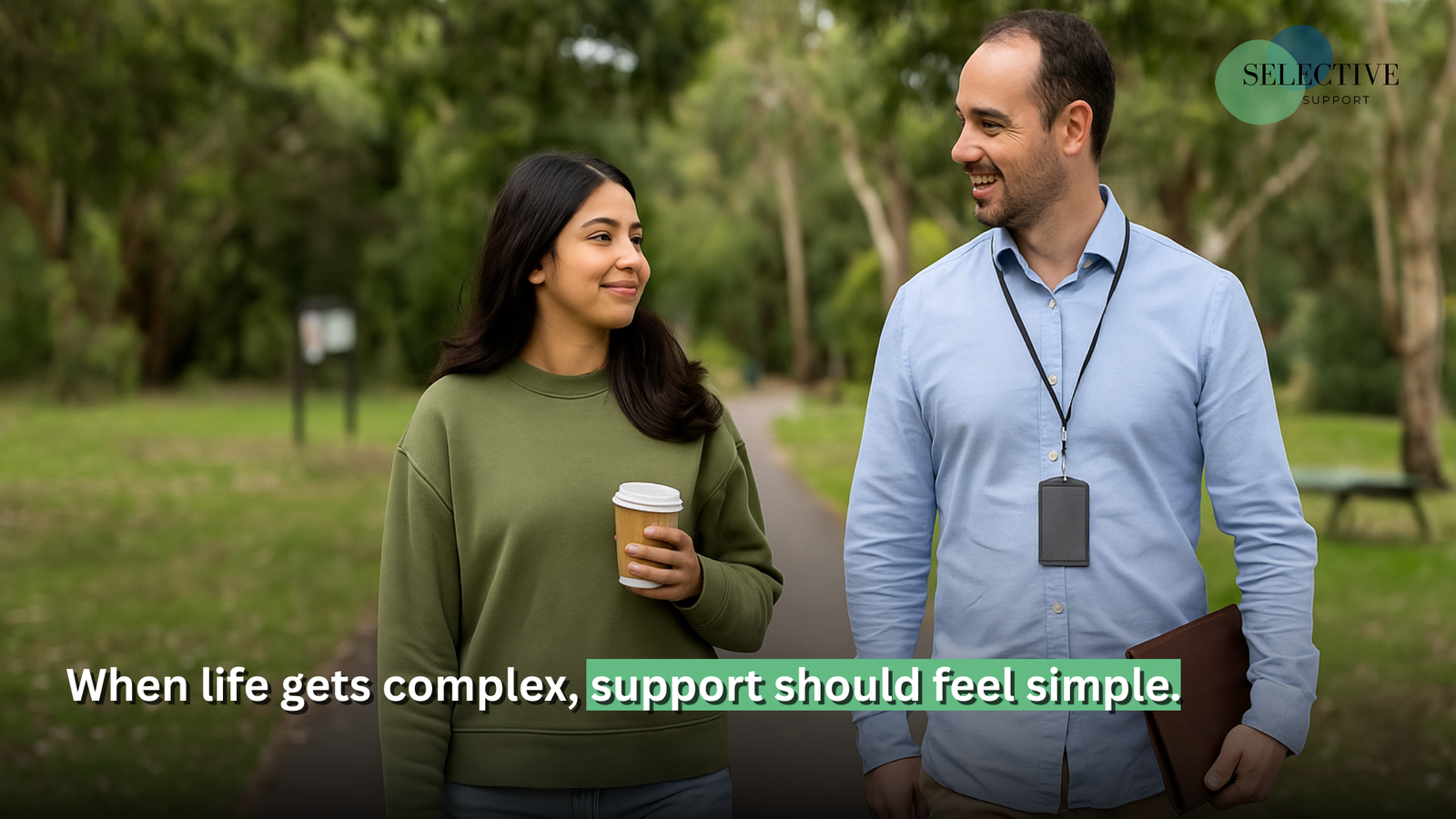6 Signs You Need Specialised Support Coordination
Ever feel like managing your NDIS plan has become more stressful than helpful?
Between appointments, funding decisions, and trying to keep every service on the same page, it can start to feel like a full-time job, especially if your situation is more complex.
That’s where specialised support coordination can make a real difference.
This type of support is designed for people who are dealing with challenges like mental health needs, housing issues, or juggling multiple services. In this article, we’ll walk you through six clear signs that you may benefit from working with a specialist support coordination NDIS provider and how this added level of care can help you feel more supported, in control, and heard.
What Is Specialised Support Coordination and Who Is It For?
How Specialist Support Coordination (NDIS) Offers Extra Help
Specialised support coordination is a higher level of support for people whose lives are more complex. If you’re managing mental health challenges, navigating multiple providers, or going through big life changes, you might need more than standard coordination.
With specialist support coordination through the NDIS, you get someone experienced in handling layered, tricky situations, someone who doesn’t just tick boxes but takes the time to understand your life and what you need most.
This level of support is tailored for participants who:
- Have multiple or high-risk needs
- Are involved with systems like justice, child protection or housing
- Are going through a significant crisis or transition
- Find it hard to manage services on their own
Here’s why this matters right now: In the June quarter, around 45% of active NDIS participants had support coordination included in their plans, showing the growing demand for this crucial support type.
Common Situations That Call for Specialised Support
Let’s say you’ve just come out of hospital, or you’re supporting a loved one with mental health and behavioural needs, this is where specialist support coordination providers step in. They help bring everything together: NDIS, health, housing, and more, so you’re not left juggling it all alone.
6 Signs You May Benefit from Specialised Support Coordination
1. You’re Managing Complex Mental Health or Multiple Services
If you’re juggling several services, mental health support, housing, health appointments, and NDIS providers, it can feel like you’re the only one holding it all together. Specialist support coordination helps by bringing these pieces into a clear, manageable plan so you can focus on your wellbeing.
2. You’re Constantly Chasing Services or Getting Conflicting Advice
It can be exhausting making phone calls, following up on referrals, and hearing different answers from different providers. Specialist coordinators work to streamline communication, follow up with services, and make sure everyone is on the same page.
3. You’ve Been Through a Crisis or Major Life Change
Life can change quickly, whether it’s a hospital stay, family breakdown, or a period of homelessness. In these situations, specialist coordination helps stabilise things, prioritise urgent needs, and set up the right supports to move forward safely.
A specialist support coordination provider can offer stability during chaos. We help put immediate supports in place while also planning for the future, so you can feel safe again.

4. You Feel Like You’re Falling Through the Cracks
Sometimes it feels like no one is really listening. If you’ve tried asking for help but still feel stuck or invisible, specialist coordination can ensure nothing is missed and that your needs are clearly represented and followed through.
5. You Struggle to Advocate for Yourself or Your Loved One
The NDIS can be complex, and it’s not always easy to speak up, especially if English isn’t your first language or if past experiences make it hard to trust new people. Specialist coordinators are trained to advocate clearly and respectfully, helping your voice be heard.
At Selective Support, we understand how much courage it takes to ask for help. We offer inclusive, culturally safe support tailored to your family and your voice.
6. Your Current Coordinator Doesn’t Understand Your Story
Support should feel personal. If your current coordinator keeps changing or doesn’t seem to understand your needs, it may be time for someone who brings consistency, understanding, and a more tailored approach to your support journey.
“When someone’s juggling mental health, housing, and multiple services, it’s not just about connecting supports, it’s about restoring stability and trust. Specialist support coordination helps people feel less alone in the chaos and more in control of their future.”
– Selective Support team
You Deserve the Right Kind of Support
If any of these 6 signs felt familiar, whether it’s chasing services, managing mental health, or simply feeling unseen, it could be time to consider specialised support coordination. Needing extra support isn’t a weakness. It’s a sign that you’re ready for things to get easier.
At Selective Support, we’re here to make that next step feel simple and safe. You’ll have one trusted coordinator, a team who listens, and support that’s shaped around you, not the other way around.
Ready for support that actually supports you? Book a free, no-pressure chat with Selective Support. We’re here to walk beside you, one step at a time.
Frequently Asked Questions About Specialised Support Coordination
1. How do I get specialised support coordination in my NDIS plan?
To access specialised support coordination, it must be included in your NDIS plan. This usually happens after an assessment that shows you have complex needs. You can request a plan review through your LAC or planner if you think it’s necessary.
2. Can I change my NDIS support coordinator if things aren’t working out?
Yes, you have the right to change your support coordinator at any time. If you feel unheard, unsupported, or confused, you can contact the NDIS or speak with a new provider who better understands your needs.
3. What’s the difference between a support coordinator and a recovery coach?
A support coordinator helps you manage and use your NDIS plan. A psychosocial recovery coach supports you with mental health goals, building capacity, and developing recovery-oriented strategies. Some people have both, depending on their plan.


